Several collagen skin benefits help keep our skin plump and supple. Unfortunately, as we age, loss of collagen in the skin can result in sagging skin, wrinkles, and a loss of radiance. In this blog, we will discover more about the uses of collagen, collagen loss, and the best collagen skin treatments to boost collagen levels and give your skin a solid and youthful appearance.
What is collagen?
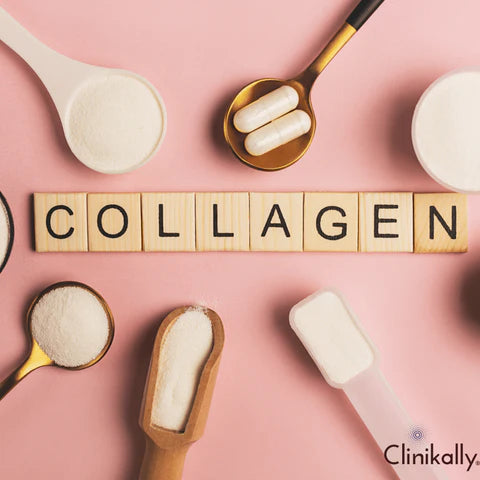
Collagen is the most abundant protein our body naturally produces and is found in the bones, muscles, skin, and tendons. It plays a key role in providing structure, strength, and support to our skin, hair, bones, tendons, ligaments, blood vessels, cartilage, and connective tissue. Simply put, it acts as a glue that holds everything together. Our skin's structural scaffolding is made up of collagen. It is mostly found in the middle layer of the skin (the dermis). Together with elastin, it helps give skin its elasticity and is essential in our skin's natural renewal process.
Collagen's primary properties are as follows:
-
Protein Structure: Collagen is a fibrous protein composed of amino acids, primarily glycine, proline, hydroxyproline, and arginine. These amino acids combine to form a unique triple-helix structure that gives tissues strength and stability.
-
Rich Protein: This protein is the most prevalent in the human body and makes up a large amount of the extracellular matrix, the structure that holds cells and tissues together.
-
Tissue Support: The elasticity, firmness, and integrity of many body structures, such as the skin, bones, cartilage, tendons, and organs, are preserved by collagen, which also offers structural support.
-
Types of Collagen: The body uses several forms of collagen, each of which performs a particular function. Skin, bones, tendons, and organs are home to the most common type of collagen, called type I collagen. Type II collagen is found primarily in cartilage, while other types can be found in blood vessels, hair, and other tissues.
Collagen synthesis occurs naturally in the body, but it diminishes with age, resulting in a loss of skin elasticity, joint flexibility, and overall structural integrity. UV exposure, poor nutrition, smoking, and certain medical conditions can all have an impact on collagen production. Collagen supplements and topical treatments have grown in popularity as a way to support collagen production and improve skin elasticity, joint function, and overall health due to their importance in maintaining healthy skin, promoting joint health, and supporting overall body structure.
The role of collagen in skin health
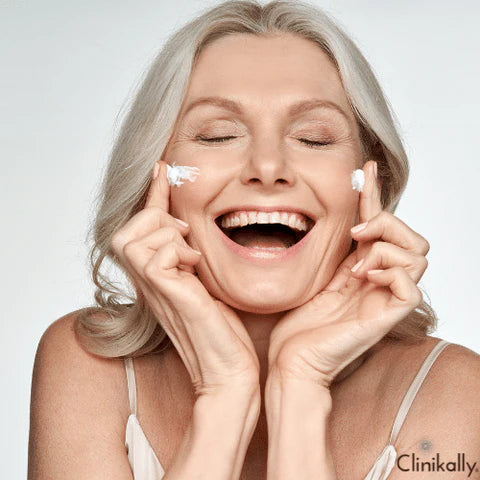
Collagen is a vital protein found in the body that plays an important role in skin health. It is the most abundant protein in the skin, accounting for a significant portion of its structure. Collagen gives the skin structural support, elasticity, and strength. Here's how collagen benefits skin health:
-
Structure and firmness: Collagen fibres form a network that serves as the skin's framework. This framework provides strength and firmness to the skin's structure.
-
Elasticity: Collagen works with another protein, elastin, to give the skin its elasticity. This elasticity enables the skin to stretch and then return to its original shape, aiding in the prevention of sagging and wrinkles.
-
Hydration: Collagen attracts and retains water molecules, which helps to keep the skin moist. This hydration is critical for keeping the skin plump, supple, and youthful.
-
Wound Healing: Collagen is involved in the natural healing process of the skin. It promotes the growth of new skin cells and tissue, which aids in the healing of wounds, cuts, and other skin injuries.
As we age, the body's natural collagen production decreases, resulting in wrinkles, sagging, and decreased elasticity. Furthermore, factors such as sun exposure, smoking, a poor diet, and other environmental factors can all hasten collagen breakdown, negatively impacting skin health.
Several strategies can be used to support and maintain healthy skin:
-
Diet: A well-balanced diet high in vitamin C, amino acids, and antioxidants can aid in collagen production. Citrus fruits, berries, leafy greens, and lean proteins can all be beneficial.
-
Skincare: Using skincare products containing retinoids, peptides, and vitamin C can help stimulate collagen production and protect the skin from damage.
-
UV ray protection: Limiting sun exposure and using sunscreen daily can help prevent collagen breakdown caused by UV radiation.
-
Collagen supplements: Some people choose collagen supplements, which come in a variety of forms, such as pills, powders, and drinks. While these supplements may have skin health benefits, their effectiveness varies, and it is critical to consult a healthcare professional before incorporating them into your routine.
Different types of collagen in skincare
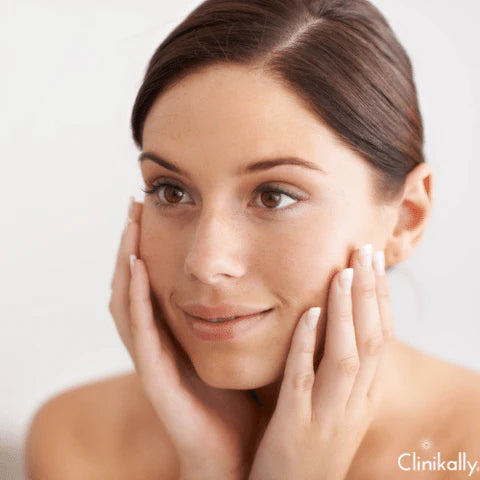
Various types of collagen are used in skincare to address specific concerns and promote skin health. While the human body contains over 28 different types of collagen, the most common types found in skincare products are:
-
Type I Collagen: The most abundant type of collagen in the skin and is responsible for structural support and elasticity. It contributes to the skin's firmness and resilience.
-
Type III Collagen: Found frequently alongside Type I collagen, Type III collagen supports the structure of the skin and contributes to its elasticity. It is especially common in developing skin, but its prevalence decreases with age.
-
Type VII Collagen: This collagen type is necessary for anchoring the upper layers of the skin to the deeper layers. It is essential for maintaining the skin's integrity and firmness.
Collagen is frequently used in skincare products in a variety of forms, including:
-
Collagen Peptides: These are shorter chains of amino acids derived from collagen. They are believed to be easily absorbed by the skin and to stimulate the body's collagen production.
-
Collagen Protein: Collagen protein is typically derived from animal sources such as fish, bovine, or chicken. It is used in skincare products because of its moisturising and firming properties.
-
Collagen-Boosting Ingredients: Some skincare products contain ingredients that either stimulate or support the skin's natural collagen synthesis. Retinoids (such as retinol), vitamin C, peptides, and certain antioxidants are examples.
-
Topical Collagen: Certain creams or serums claim to contain collagen molecules. However, whether collagen molecules are small enough to penetrate the skin effectively is debatable. Some believe that these products still provide hydration benefits, but their impact on collagen production in the skin is unclear.
It is important to note that, while topical collagen products may provide temporary hydration and potentially improve skin appearance, their ability to significantly boost the body's collagen production is debatable. Their effectiveness is influenced by factors such as molecule size, penetration into the skin, and individual skin differences. Furthermore, skincare products that stimulate the skin's natural collagen production or contain collagen-boosting ingredients may provide more tangible and long-term benefits by enhancing the skin's natural ability to produce collagen. Before incorporating any new collagen or collagen-boosting ingredients into your skincare routine, patch-test and consult a dermatologist to determine the best products for your skin type and concerns.
Best skin treatments to boost collagen levels
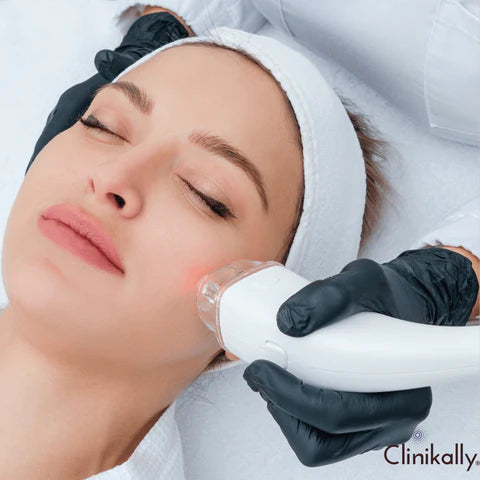
Collagen provides the skin with texture, strength, and resilience. Nowadays, numerous techniques and treatments can boost collagen in the skin. These treatments help to return collagen levels to their optimal level; however, the body's natural collagen production will continue to decrease due to ageing and external factors. Treatments can be repeated to extend results.
Causes of collagen loss

Here are some factors that can lead to collagen loss:
-
Smoking: Smoking reduces the production of elastin and collagen by as much as 40%. This is why smokers often have much older-looking faces than non-smokers do at an equivalent age.
-
Stress: Stress has been shown to reduce collagen production by up to 25%. This is because stress releases hormones that tell your body not to produce collagen.
-
Excessive sun exposure: UV rays damage cells in your skin and cause them to produce fewer new cells, including new cells capable of producing collagen.
Benefits of collagen skin treatments
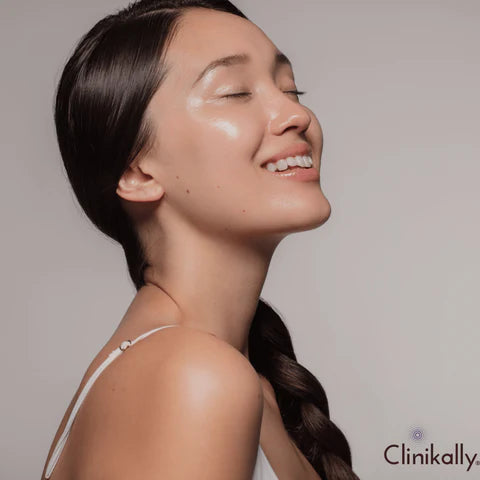
Benefits of collagen treatment for skin include:
-
Keeping the skin dewy and plump
-
Keeping the skin firm and smooth
-
Give a healthy glow
-
Keeping skin supple that bounces back
-
Keeping delicate areas like under eye skin looking bright and revitalised
You must have observed how children have such smooth skin. This is because our collagen production is highest when we are young. Gradually, as we age, our collagen levels start to decline; studies show that our collagen levels begin depleting by about 1% every year as early as our 20s. This collagen loss results in skin sagging, wrinkles, and the skin losing its plumpness and elasticity.
Professional collagen-stimulating procedures
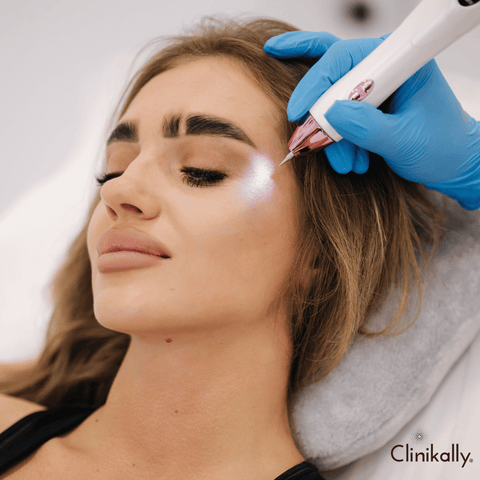
Several professional collagen-stimulating techniques are available to increase collagen production in the skin. Dermatologists, plastic surgeons, and experienced skincare specialists frequently administer these procedures, which can help enhance skin texture, firmness, and overall appearance. Among the most prevalent collagen-stimulating techniques are:
-
Microneedling (Collagen Induction Therapy): This method uses a device with fine needles to induce controlled micro-injuries in the skin. These micro-injuries activate the body's natural wound-healing mechanism, increasing collagen and elastin production. Microneedling can improve skin texture and make scars, wrinkles, and fine lines less visible.
-
Laser Therapy (Fractional Laser, CO2 Laser, etc.): Various laser treatments can stimulate collagen formation by targeting different layers of the skin. For example, fractional lasers cause small injuries in the skin, stimulating collagen remodelling. Sun damage, pigmentation disorders, wrinkles, and skin laxity can all be treated with laser therapy.
-
Radiofrequency (RF) Therapy: Energy waves are used in RF treatments to heat the deeper layers of the skin, increasing collagen formation and tightening the skin. These non-invasive or minimally invasive treatments are intended to tighten skin and reduce wrinkles and fine lines.
-
Ultrasound Therapy (Ultherapy): Ultherapy stimulates collagen production in the deeper layers of the skin by using focused ultrasonic energy, lifting and tightening sagging skin on the face, neck, and décolletage. It is a non-invasive treatment that stimulates collagen regeneration at particular depths beneath the skin.
-
Chemical Peels: To exfoliate the skin's top layers and encourage cell turnover, certain chemical peels contain chemicals such as alpha hydroxy acids (AHAs) or trichloroacetic acid (TCA). This procedure can boost collagen production, improve skin texture, and minimise the appearance of fine lines and wrinkles.
-
Dermal Fillers and Injectables: While injectable treatments such as hyaluronic acid-based fillers or collagen-stimulating injections do not directly stimulate collagen, they can add volume to the skin, reduce the appearance of wrinkles, and indirectly support collagen production by providing structural support.
These professional procedures can have varying degrees of effectiveness and downtime, depending on the specific treatment and individual skin concerns. The results may also vary from person to person. It's crucial to consult with a qualified skincare professional or dermatologist to determine the most suitable treatment for your skin type, concerns, and desired outcomes.
Nutritional supplements for collagen production
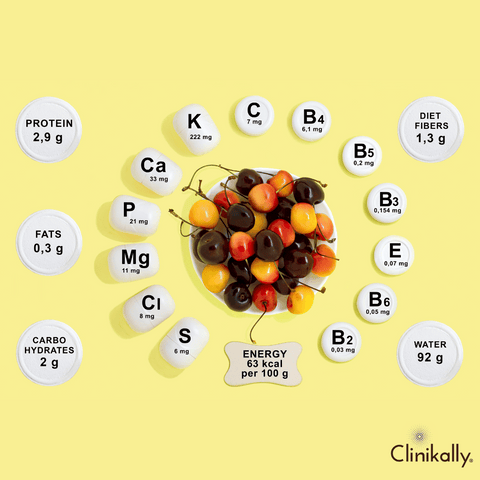
Several nutritional supplements are thought to aid in the formation of collagen in the body. While the effectiveness of these supplements in directly raising collagen levels may vary, some elements are proven to benefit overall skin health and may aid in collagen synthesis. The following are some supplements that are usually connected with collagen production:
-
Vitamin C: Vitamin C is essential for collagen synthesis. It participates in the enzymatic reactions required for collagen production as a cofactor. Citrus fruits, strawberries, bell peppers, and broccoli are all high in vitamin C. Vitamin C supplements may also be beneficial, especially if dietary intake is inadequate.
-
Proline and Glycine: These amino acids are essential components of collagen. Bone broth, gelatin, chicken skin, and certain dairy products are high in these amino acids. These amino acids or their precursors are frequently found in collagen supplements.
-
Copper: Copper is a mineral that is required for the cross-linking of collagen and elastin. Copper is found in foods such as nuts, seeds, lentils, and shellfish.
-
Silica: Silica is found in foods such as bananas, oats, barley, and certain vegetables and is involved in collagen formation. Some supplements also contain silica, which aids in the production of collagen.
-
Zinc: Zinc is a mineral that is required for the synthesis of collagen. It can be found in foods such as red meat, poultry, beans, nuts, and whole grains.
-
Vitamin E: This vitamin is an antioxidant, protecting collagen from oxidative damage. Vitamin E-rich foods include almonds, spinach, sunflower seeds, and avocado.
-
Collagen Supplements: Collagen supplements derived from animal sources (such as fish, bovine, or chicken collagen) are available in a variety of forms, such as powders, pills, or drinks. While their effectiveness is debatable, some people claim that regular consumption improves skin health and collagen synthesis.
It's important to remember that, while these supplements may help with overall skin health and collagen synthesis, their benefits can differ from person to person. A balanced diet rich in fruits, vegetables, lean meats, and whole grains is also important for overall skin health and collagen formation. It is best to see a healthcare practitioner or a certified dietitian before beginning any supplement regimen to establish the appropriate dosage, potential interactions with medications, and suitability for particular health needs.
How to prevent collagen loss

Minor tweaks to your daily skincare routine can go a long way. Here are some natural ways to boost collagen production and prevent collagen loss
-
Get a facial massage: Facial massage can help stimulate collagen production and strengthen muscle memory. It lets more blood circulate the skin, and toned muscle retains the skin's tightness.
-
Stay hydrated: Drink lots of water to keep skin hydrated and flush out toxins, keeping the complexion clear. Collagen can bind to water and naturally condition the skin to maintain moisture levels that leave the skin brighter looking.
-
Eat well: Eating protein-rich foods like chicken and egg yolks, salmon, and pork nourishes the body and boosts collagen production. Also, look for Vitamin C-rich foods like broccoli, strawberries, and pineapple, as Vitamin C is essential for collagen synthesis.
-
Improve your lifestyle: Adopt healthy lifestyles and avoid excess sugar, alcohol, and smoking as they can inhibit collagen production and accelerate ageing.
Lifestyle changes to protect collagen
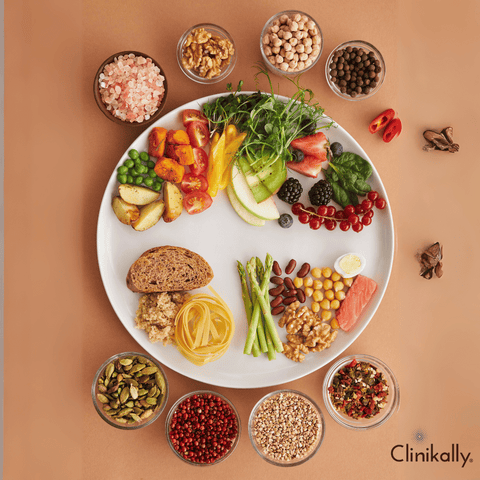
Certain lifestyle changes can help protect collagen and improve skin health overall. Here are some suggestions:
-
Sun Protection: UV radiation from the sun can hasten collagen breakdown and lead to premature skin ageing. Use a broad-spectrum sunscreen with at least SPF 30 every day, wear protective clothes, hats, and sunglasses, and seek shade during peak sun hours.
-
Healthy Diet: Eating a well-balanced diet high in vitamins, minerals, and antioxidants can help promote collagen production and shield the skin from harm. Incorporate vitamin C-rich foods (citrus fruits, bell peppers), leafy greens, berries, and omega-3 fatty acids (salmon, chia seeds), as well as lean protein sources (fish, chicken).
-
Sufficient Hydration: To maintain the hydration of your skin, drink a lot of water. Sufficient hydration promotes the suppleness and fullness of skin.
-
Reducing Alcohol and Smoking: Smoking causes the skin's collagen and elastin to break down, which causes wrinkles and early ageing. Excessive alcohol consumption can also dehydrate the skin and contribute to the breakdown of collagen. Limiting or quitting smoking and limiting alcohol consumption can both help preserve collagen.
-
Regular Exercise: Exercise improves blood circulation, which promotes nutrient delivery to the skin cells, aiding in collagen production. Additionally, regular physical activity supports overall skin health by reducing stress and promoting better sleep.
-
Stress Reduction: Chronic stress can hurt collagen production and contribute to skin problems. To effectively manage stress levels, engage in stress-relieving activities such as meditation, yoga, deep breathing exercises, or hobbies.
-
Quality Sleep: Getting enough sleep allows the body to repair and regenerate skin cells. Because the body produces collagen while sleeping, getting a good night's rest is essential for maintaining healthy skin.
-
Gentle Skincare Routine: Avoid using harsh skincare products or treatments that can harm the skin's natural barrier and cause collagen breakdown. Use skin-type-appropriate cleansers, moisturisers, and sunscreen.
-
Skincare Maintenance: Using skincare products containing antioxidants, retinoids, peptides, and other collagen-boosting ingredients regularly can help support collagen production and protect the skin from damage.
By incorporating these lifestyle changes into your routine, you can help protect collagen, maintain healthy skin, and slow the ageing process. Individual factors, genetics, and ageing will all naturally impact collagen levels, but these lifestyle practises can help improve skin health.
Importance of antioxidants in preserving collagen

Antioxidants are essential for collagen preservation and general skin health. Collagen, the skin's structural protein, is vulnerable to free radical damage. Free radicals are unstable molecules produced by a variety of conditions such as UV radiation, pollution, stress, and a poor diet. These chemicals can harm collagen, causing premature ageing, wrinkles, and drooping skin. Antioxidants serve as free radical defenders, neutralising them and preventing or minimising damage to collagen and other skin structures. Here's why antioxidants are vital for collagen preservation:
-
Neutralising Free Radicals: Antioxidants work by donating electrons to unstable free radicals, stabilising them and preventing them from causing oxidative stress and damage to collagen fibres in the skin.
-
Preserving Collagen: Antioxidants aid in preventing collagen deterioration by lowering oxidative stress. This collagen fibre preservation contributes to the general structure, elasticity, and firmness of the skin.
-
Increasing Collagen Synthesis: Collagen synthesis depends on several antioxidants, including vitamin C. By serving as cofactors in the enzymatic reactions necessary for the formation of collagen, they directly contribute to the production of collagen.
-
Reducing Inflammation: The anti-inflammatory qualities of antioxidants can aid in reducing skin inflammation. Antioxidants help preserve collagen indirectly by lowering inflammation, which can speed up the breakdown of collagen.
-
Sun Damage Protection: One of the main sources of free radicals that harm collagen is the sun's UV radiation. Applying topically or consuming them through diet can offer additional protection against UV-induced collagen damage from antioxidants such as vitamins E and C.
-
Improving Skin Repair: Antioxidants can repair and replace skin cells that have been damaged by environmental factors. This may help to preserve your skin's overall health and rebuild collagen.
Vitamin C, vitamin E, beta-carotene, resveratrol, coenzyme Q10, and flavonoids are common antioxidants that are useful for protecting collagen and supporting skin health and can be found in a variety of fruits, vegetables, and skincare products. Consuming antioxidant-rich fruits, vegetables, nuts, and whole grains, as well as utilising antioxidant-containing skincare products, can help protect collagen, slow premature ageing, and maintain healthy, youthful-looking skin. A balanced lifestyle that reduces exposure to environmental stressors and promotes general skin health is also necessary for collagen maintenance.
Improve skin elasticity with collagen treatment!
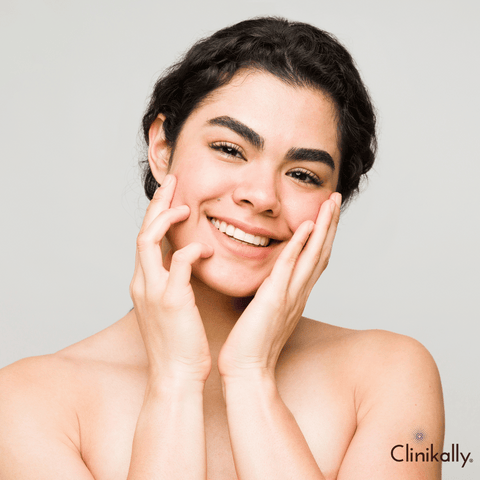
As discussed, our collagen is vital to keep skin looking healthy and supple; however, over time, our skin loses collagen due to ageing and external factors. Numerous treatments help improve skin elasticity and boost collagen production. You can also try home remedies and topical creams. However, beyond using collagen creams, healthy lifestyle habits like eating less sugar, quitting smoking, and using sunscreen can help decrease collagen loss effectively.
Using collagen skin treatment at home
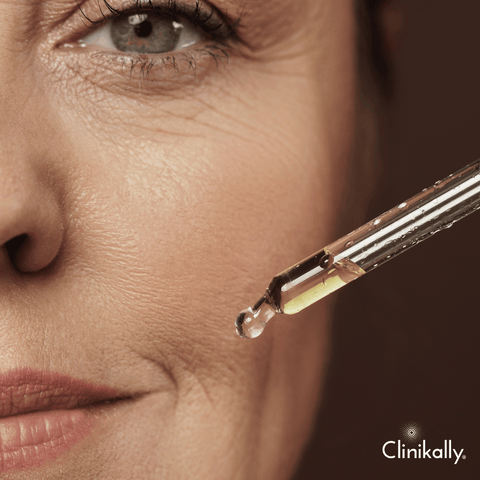
There are numerous ways to boost collagen levels at home. These include diet changes and nourishing your skin with collagen-boosting ingredients. Here are some methods:
-
Hyaluronic acid: Hyaluronic acid can be found in most topical creams and serums. It increases hydration in the skin and helps promote collagen production.
-
Vitamin C: Vitamin C is important in the production of collagen. Intake of vitamin C-rich foods, including citrus fruits, green or red peppers, strawberries, and broccoli, can help boost collagen levels.
-
Antioxidants: Antioxidants in foods like blueberries, green tea, mulberry extract, pomegranate extract, coffee extract, and cinnamon help protect and rejuvenate the skin.
-
Collagen supplements: Collagen supplements can help reduce wrinkles, tighten loose facial skin, and reverse hyperpigmentation. It also improves skin elasticity and hydration.
While these home remedies may provide some benefits, the most effective strategy to maintain collagen formation and skin health is through a balanced diet, enough hydration, frequent exercise, and sun protection.
Using collagen skin creams to rejuvenate skin
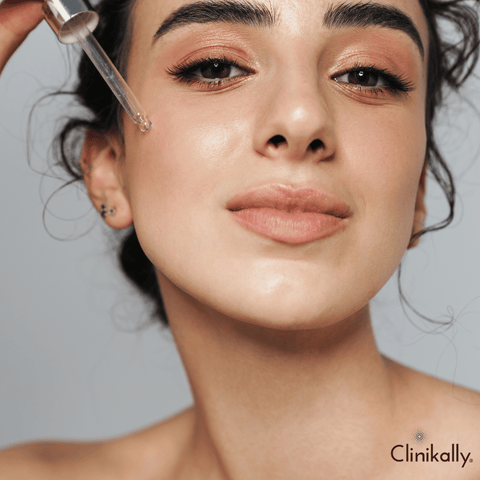
Many collagen-based skin products are available, and it's essential to understand how they work on the skin. It is best to consult your dermatologist to know which cream best suits your skin type. At Clinikally, we provide video consultations with the best dermatologists in India who will give you a personalised treatment plan based on your specific skin concern. You can book a consultation online at your chosen time from the comfort of your home.
Collagen-based topical creams plump and hydrate the skin, giving you bouncy and healthy-looking skin. When looking for the best topical creams and serums, look for these ingredients to boost collagen production
- Vitamin C
- Aloe vera
- Retinol
- SPF
- Niacinamide
- Hyaluronic acid
Innovative collagen-boosting skincare products
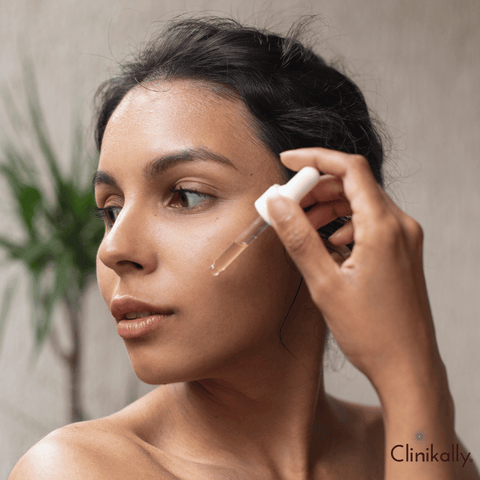
These products frequently promise to increase skin firmness, promote collagen production, and lessen the visibility of wrinkles and fine lines. Here are some cutting-edge ingredients and skincare products that increase collagen:
-
Peptides: Peptides are short chains of amino acids that can signal the skin to produce more collagen. To stimulate collagen synthesis, serums, creams, and masks contain peptide formulations such as palmitoyl pentapeptide-4 (Matrixyl).
-
Retinoids: Retinoids, such as retinol and prescription retinoids like tretinoin, are known to increase collagen production and improve skin texture. They increase collagen synthesis and reduce the appearance of wrinkles by stimulating cell turnover.
-
Vitamin C: Vitamin C is a powerful antioxidant that is essential for collagen synthesis. Innovative serum and cream formulations of stable vitamin C derivatives help brighten the skin, even out skin tone, and stimulate collagen production.
-
Growth Factors: Growth factors are naturally occurring proteins that regulate cell growth and repair. Growth factor-containing skincare products aim to rejuvenate the skin and promote collagen production for improved skin texture and elasticity.
-
Collagen-Boosting Actives: Collagen-boosting ingredients include bakuchiol, a plant-derived alternative to retinol, and niacinamide (vitamin B3). They aid in collagen production and skin firmness without being as irritating as other ingredients.
-
Copper Peptides: Copper peptides are thought to aid in the production of collagen and the regeneration of the skin. Skincare products containing copper peptides are believed to support the skin's natural renewal processes.
-
Plant Stem Cells: Some skincare products contain plant stem cells, which are thought to promote the skin's natural regeneration and collagen production, thereby improving skin firmness and elasticity.
-
Microcurrent Devices: These at-home gadgets stimulate facial muscles and increase collagen formation by using low-level electrical currents. They are intended to tighten and firm the skin.
Keep in mind that the efficacy of these products varies depending on different skin types and issues. Furthermore, while many products promise to promote collagen formation and enhance skin, the level of their impact on collagen production and skin improvement may vary. Consider seeing a dermatologist or skincare specialist before introducing any new skincare product or ingredient into your routine to verify it is compatible with your skin type, issues, and overall skincare regimen. Also, be patient with skincare products because collagen synthesis and skin benefits can take time to show.































